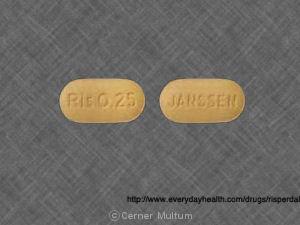Risperdal Lawsuit
A Brief Guide to Filing a Risperdal Lawsuit:
What is Risperdal?
Risperdal, which is the brand name for Risperidone, is used to treat symptoms of schizophrenia (a mental condition that causes unusual or disturbed thinking, strong or inappropriate emotions and a general loss of interest in life). Risperdal is prescribed to adults and teenagers 13 years and up. Risperdal may also be used to treat manic episodes in adults and children 10 years and up. The drug belongs to a class of medications known as atypical antipsychotics. It is effective by altering the activity of certain brain substances.
Risperdal Side Effects:
Risperdal side effects may arise regardless of adherence to intake instructions or dosage strengths. If you experience any of the below Risperdal side effects or if the reactions are persistent please contact your doctor to discuss alternative treatment plans:
Common Risperdal Side Effects Include: dizziness; nausea; vomiting; diarrhea; heartburn; dry mouth; constipation; increased saliva; weight gain; restlessness; stomach pain; decreased sexual interest; breast milk production; muscle or joint pain; difficulty urinating.
Some Risperdal side effects may be classified as severe. If you experience any of the following Risperdal side effects or those listed within the IMPORTANT WARNING section of the drug’s packaging, please contact your doctor immediately:
Severe Risperdal Side Effects Include: muscle stiffness; fever; sweating; seizures; hives; itching; difficulty swallowing or breathing; faintness; irregular heart beat; confusion; painful erection that lasts for hours.
In addition to these Risperdal side effects, child users may gain wait while on the drug. Please talk to your doctor concerning Risperdal side effects.
Risperdal and the FDA:
In 2011, the United States Food and Drug Administration notified healthcare professionals and the public of error reports in which patients were given Risperdal instead of Requip and vice versa. The FDA determined that factors contributing to confusion between the two medications include: similarities of brand and generic names; illegal prescription making; overlapping product characteristics; and similarities of packaging and product labels.
Risperdal Lawsuits:
Since the FDA approved the prescription medication Risperdal for treatment of schizophrenia in 1993, the drug has been the target of extensive litigation, including Risperdal lawsuits filed by the United States Federal Government.
Because of the litany of Risperdal side effects (listed above) and unscrupulous marketing practices, the bulk of Risperdal lawsuits have been filed against the drug’s manufacturer (Johnson & Johnson).
Both Federal and State Risperdal lawsuits were filed against Johnson & Johnson with regards to illegal marketing of the drug. Johnson & Johnson, the defendant in these Risperdal lawsuits, was charged with deceptive marketing practices and paying kickbacks to doctors for prescribing the drug for off-label uses. In 2010, a $258 million Risperdal settlement was ordered by a judge.
Other prominent Risperdal lawsuits include:
A 2011 Texas Risperdal lawsuit ended before a verdict could be reached when Johnson & Johnson agreed to pay a $158 million Risperdal settlement. In April of that year, an Arkansas Risperdal lawsuit resulted in a Risperdal settlement of $1.1 billion. Similar quests for successful Risperdal lawsuits have been filed in Pennsylvania and West Viriginia—these Risperdal lawsuits are currently pending.
It must be stated: the bulk of Risperdal lawsuits—particularly those with exorbitant settlements—do not revolve around the drug’s side effects. As of February 2012, it was estimated that more than 400 people had filed a Risperdal lawsuit seeking compensation for medical costs, pain and suffering and lost wages. These Risperdal lawsuits are filed by users who develop severe Risperdal side effects.
The first personal injury Risperdal lawsuit did not result in success—the court ruled that the plaintiff did not have sufficient proof that the drug was responsible for his development of diabetes.
The number of private users filing a Risperdal lawsuit is unknown. The vast majority of these Risperdal lawsuits are being heard as part of a mass tort action at Philadelphia's Complex Litigation Center.
Sources:
1.http://www.fda.gov/Safety/MedWatch/SafetyInformation/ucm175826.htm
2.http://www.fda.gov/Drugs/DrugSafety/ucm258805.htm
3.http://www.accessdata.fda.gov/scripts/cder/drugsatfda/index.cfm?fuseaction=Search.
SearchAction&SearchTerm=risperidone&SearchType=BasicSearch
4.United States National Library of Medicine “Risperidone” retrieved from:
http://www.ncbi.nlm.nih.gov/pubmedhealth/PMH0000944/
Related Topics
- Vioxx Lawsuit
- Ketek Lawsuit
- Geodon Lawsuit
- Darvocet Lawsuit
- Tequin Lawsuit
- Ortho Evra Lawsuit
- Zoloft Lawsuit
- Zometa Lawsuit
- Seroquel Lawsuit
- Mirapex Lawsuit
